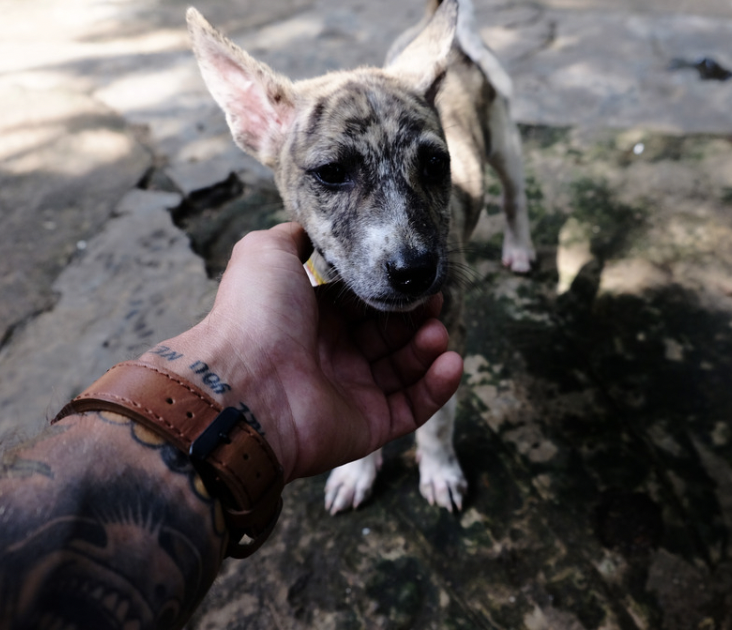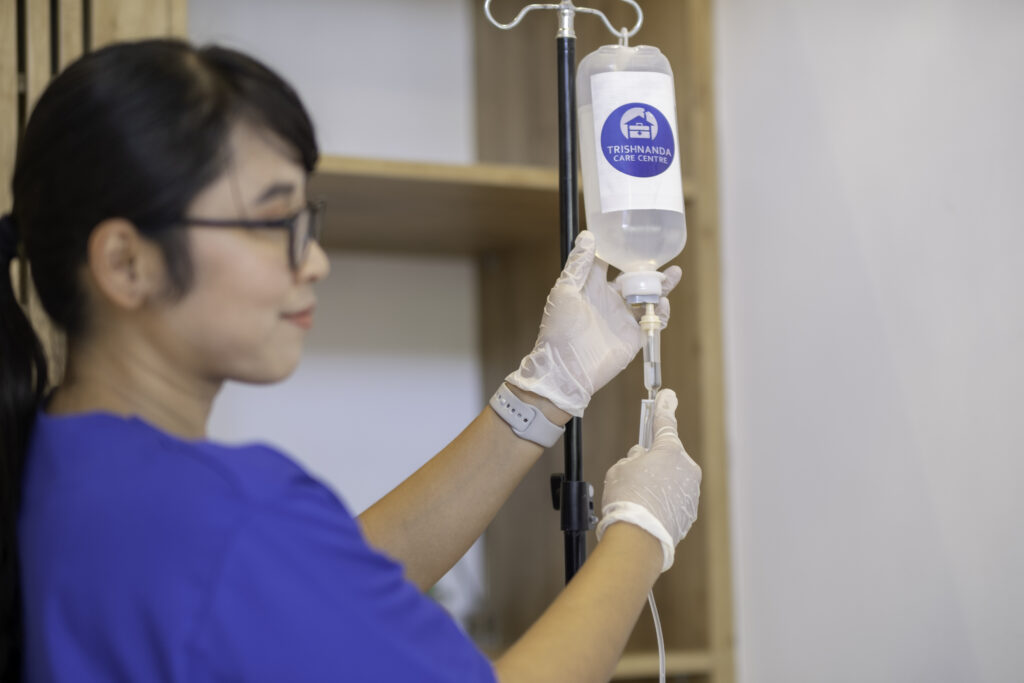
Layanan IV Hangover di Bali: Kapan Cocok dan Kapan Harus Periksa Dulu
Bangun dengan hangover parah di Bali? Matahari Januari 2026 baru saja mengintip di balik rimbunnya pepohonan di villa Anda di
As we enter 2024, Bali remains a top destination for travelers seeking sun, culture, and unforgettable experiences. However, amidst the island’s beauty lies a persistent concern – rabies. Recent reports from Bali’s provincial health ministry reveal that the island has the highest rate of rabies in Indonesia, with over 39,000 people bitten by rabies-carrying animals this year alone.
As a responsible traveler, it’s crucial to stay informed about the risks associated with rabies in Bali and take the necessary precautions to protect yourself and your loved ones. In this comprehensive guide, we’ll provide you with the most up-to-date information on rabies in Bali, from prevention to treatment, and how Trishnanda Care Centre can be your trusted partner in staying safe and healthy on the island.
According to recent data from Bali’s provincial health ministry, more than 39,000 people have been bitten by rabies-carrying animals in 2024, with about 90 percent of these cases attributed to dog bites. As of August 2024, there have been 34,809 bite cases recorded in Bali Province, with 263 positive rabies cases and four deaths. While the number of rabies-transmitting animal bites remains high, local leaders assert that the situation is still under control.
These alarming figures underscore the importance of staying vigilant and taking appropriate measures to protect yourself from rabies exposure during your time in Bali. It’s essential to understand that rabies is a viral disease that affects the central nervous system, causing inflammation in the brain and, if left untreated, ultimately leading to death.
The virus is most commonly transmitted through the bite or scratch of an infected animal, with dogs being the primary carriers in Bali. However, it’s important to note that any mammal can potentially carry rabies, including cats, monkeys, and bats.

There are two types of rabies vaccination:
At Trishnanda Care Centre, we offer both pre-exposure and post-exposure rabies vaccinations, making it convenient for you to protect yourself during your stay in Bali. Our experienced medical team is well-equipped to provide you with the necessary care and advice, ensuring your peace of mind while exploring the island.

If you’re bitten or scratched by an animal in Bali, it’s crucial to take immediate action:
Remember, time is of the essence when it comes to rabies prevention. Don’t hesitate to reach out to Trishnanda Care Centre via WhatsApp for immediate guidance and support. Our dedicated team is available 24/7 to answer your questions, provide advice, and assist you in getting the care you need.
Rabies symptoms usually appear within 1 to 3 months after exposure but can sometimes take up to a year to manifest. Early symptoms may include fever, headache, weakness, and tingling or itching at the bite site. As the disease progresses, more severe symptoms emerge, such as confusion, agitation, hallucinations, hydrophobia (fear of water), and paralysis.
Once clinical symptoms of rabies appear, the disease is almost always fatal. There is no effective treatment for rabies once symptoms develop, which underscores the importance of prompt post-exposure prophylaxis. This is why it’s so crucial to take immediate action if you suspect exposure to a rabid animal, as timely intervention can mean the difference between life and death.

While the risk of rabies in Bali is a concern, there are steps you can take to protect yourself and others during your visit:

As we navigate the challenges of rabies in Bali in 2024, it’s essential to stay informed, take necessary precautions, and seek prompt medical attention if exposed to potentially rabid animals. Remember to avoid contact with unfamiliar animals, consider getting vaccinated, and keep Trishnanda Care Centre’s contact information handy for immediate assistance.
At Trishnanda Care Centre, we’re committed to providing you with the most up-to-date information and healthcare services to ensure your safety and well-being during your time in Bali. Our experienced medical team is ready to assist you with rabies vaccination, post-exposure prophylaxis, and general healthcare advice. Don’t hesitate to reach out to us via WhatsApp or visit our website to learn more about how we can help you stay safe and healthy in Bali in 2024 and beyond.
Together, we can work towards a safer, healthier Bali for everyone.
Yes, rabies remains a significant concern in Bali in 2024. Recent reports from Bali’s provincial health ministry indicate that the island has the highest rate of rabies in Indonesia, with over 39,000 people bitten by rabies-carrying animals this year.
As of August 2024, there have been 34,809 bite cases recorded in Bali Province, with 263 positive rabies cases and four deaths.
If you’re bitten or scratched by a monkey in Bali, follow the same protocol as you would for a dog bite: wash the wound thoroughly with soap and water for at least 15 minutes and seek immediate medical attention. Contact Trishnanda Care Centre for prompt assistance and post-exposure treatment.
Yes, you can get the rabies vaccine in Bali, both for pre-exposure prevention and post-exposure treatment. Trishnanda Care Centre offers convenient and reliable rabies vaccination services, with our medical team ready to assist you at your location.
The cost of rabies treatment in Bali can vary depending on the clinic and the specific course of treatment required. At Trishnanda Care Centre, we strive to provide affordable and accessible healthcare services, including rabies vaccination and post-exposure prophylaxis. Currently for this month, we offer it 27.5% discount on the current price! (prviously 725K and now 526K).
Contact us for up-to-date pricing information and to discuss your individual needs.

Bangun dengan hangover parah di Bali? Matahari Januari 2026 baru saja mengintip di balik rimbunnya pepohonan di villa Anda di

Kapan waktu terbaik untuk melakukan tes NS1? Tes NS1 (Dengue Early Antigen) paling akurat dilakukan dalam 1 hingga 3 hari
Contact Our Doctor Now